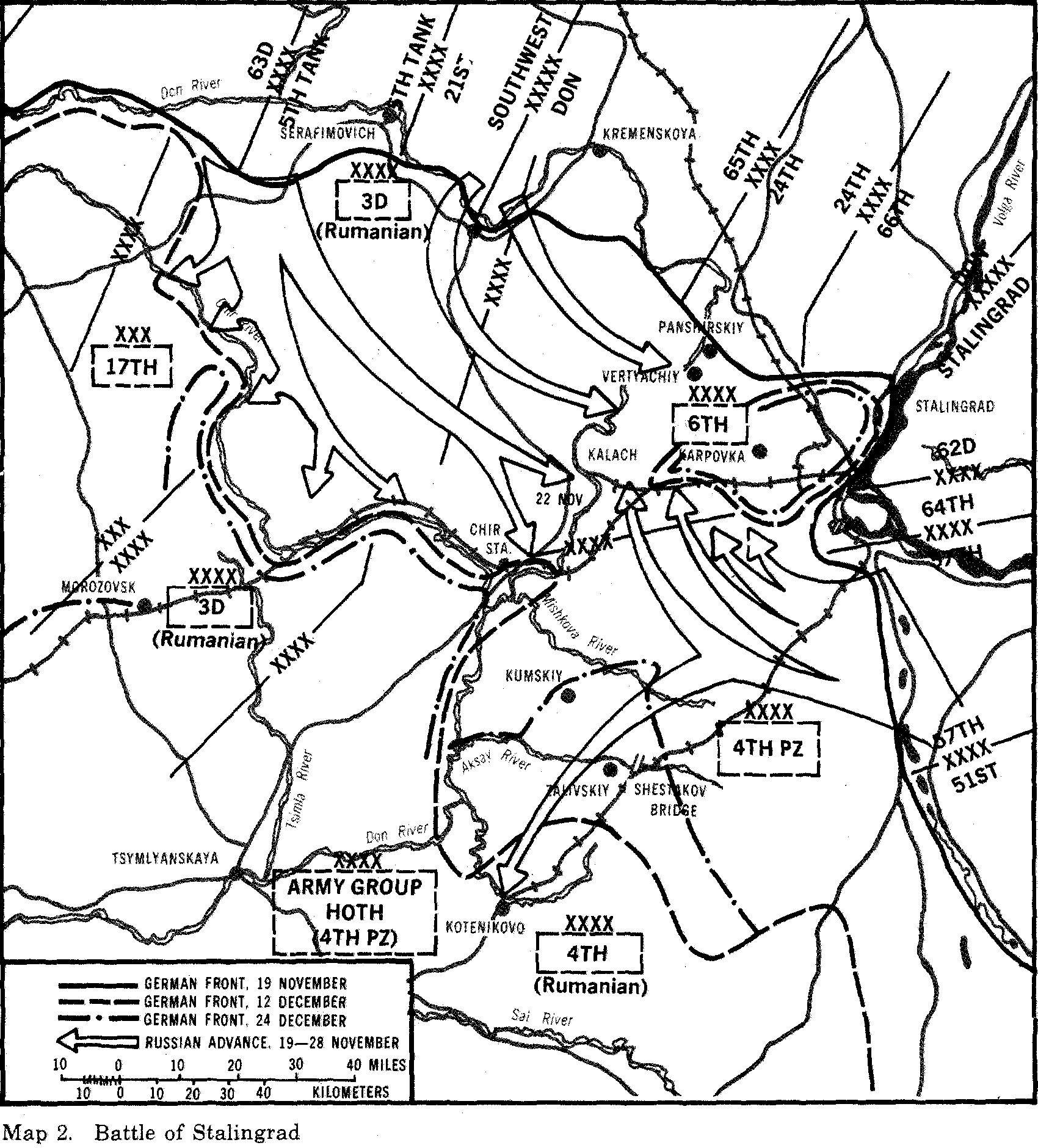Stalingrad – A Battle Analysis
The battle of Stalingrad was a clash of ideologies that pitted Adolf Hitler’s National Socialist Wehrmacht against Josef Stalin’s Communist Red Army. Hitler became bent upon taking the city that bore the name of his ideological and military enemy. Both Stalin and Hitler were in the business of being paranoid and overbearing on their respective militaries; Stalin purged his officer corps in 1937 and Hitler severely mistrusted his generals. By the time that Stalingrad came around, Hitler had seized almost total control of his army’s everyday operations.Â
On the other side of the table, Stalin had a similar situation, controlling the operations of Stavka, or Soviet high command. Hitler was not a military commander by any stretch but yet he thought that he was. His constant interference in troop movements caused numerous problems with the ever-changing situation on the battlefields. His thought that he could run the war down to the last detail from the comfort of his armored bunkers caused the German Army to suffer defeats that could have been prevented.
{default}This interference led directly to the hampering of the German Army and in particular, Stalingrad and Army Group South. Shortly, OKW (Oberkommando des Wehrmacht) came up with their plan for the continuation of Army Group South’s offensive for 1942, which was to quickly take the city of Stalingrad as an axis point for a penetration into the Caucasian oilfields, Hitler decided at the last minute to make Stalingrad the focal point of the offensive instead of just a flank guard. Stalingrad was an important rail junction and weapons producer for the Red Army, but Hitler’s insistence at taking the city played right into the hands of Stalin and Stavka, which wanted to make this city the place where everything would turn around for the Red Army.

Battle of Stalingrad (Click to enlarge)
This change in plans was nothing new for the Fuhrer. His constant meddling in the affairs of battlefield tactics took away the flexibility that was the hallmark of the success for the German army in the early stages of the war. The Germans on the offensive in the Eastern Front were almost always outnumbered; what made the Army tough was its training and professionalism. Polish, British, French and Russian soldiers would attribute that. By the time that Stalingrad occurred, Hitler had bitten off more than he could chew, assuming numerous titles that he was unqualified for. His micro-managing took the initiative away from an army that was not meant to fight on as many fronts as it was.
From the outset, the Army commanders wanted nothing to do with Stalingrad, as Field Marshal Ewald von Kleist pointed out, "Stalingrad was, at the start, no more than a name on the map of my Panzer army." The original plan for the offensive was for Army Group B (German 6th, 2nd Hungarian, 8th Italian, and 3rd Romanian) to link up with Army Group A (17th Army, the recently added 4th Panzer Army and the 5th Panzer Army) at Stalingrad, however the next day after this plan was put into motion, Hitler took away the mobility of his Panzers and slowed down the advance.
Pages: 1 2


I already have by HPS
I am interested in the PC game by DTS
QUESTION:
1. Where can I find a review of by DTS >
2. where can I purchase by DTS >
m.shen
I have a CD copy of “stalingrad ’42” by HPS
QUESTION
1. where would I find a review of “stalingrad” by DTS
2. where can I purchase “stalingrad” by DTS
marty